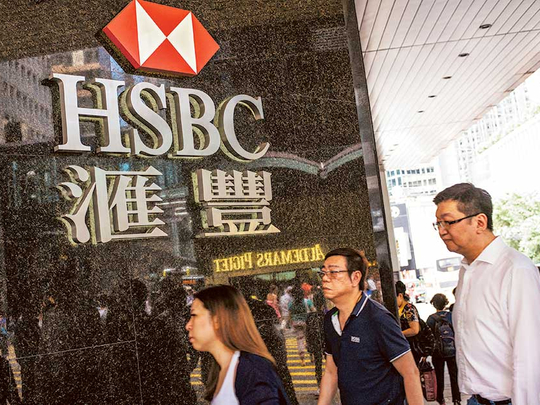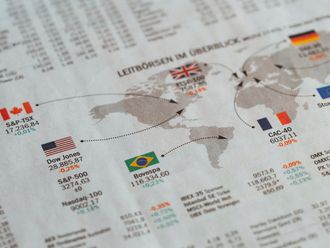
Hong Kong: HSBC Holdings Plc is aiming to roll out its own credit cards in China by the end of the year, as the UK-based lender tries to tap into rising online and mobile spending in the world’s second-largest economy.
The bank will initially target customers in the Pearl River Delta, the manufacturing hub located just north of Hong Kong, with the HSBC-branded cards, according to Kevin Martin, the firm’s Asia-Pacific head of retail banking and wealth management. The bank, which already has co-branded cards in China through a partnership with Bank of Communications Co, received regulatory approval earlier this year for its own mainland offerings.
The cards business “is the critical deliverable for us this year,” Martin said in a recent interview in his Hong Kong office. “Our ambition in the PRD is to build a full scale, digitally-driven retail banking and wealth-management business and the launch of HSBC-issued credit cards in China is key to this strategy.”
Retail banking and wealth management accounted for almost 30 per cent of the bank’s Asian pretax profit in the first quarter, filings show.
As more Chinese move online to pay for goods and services, HSBC is hoping they will use its cards for purchases, thereby luring more customers to its retail bank. This will allow it to promote personal lending, wealth-management services and other products to the new credit-card customers, according to Guotai Junan Securities Co analyst Richard Cao.
Martin declined to provide specifics on the digital features that will underpin HSBC’s new cards. Citigroup Inc and Bank of East Asia Ltd, the other foreign banks approved to issue credit cards in China, offer digital-payment services on the mainland with Alipay, Alibaba Group Holding Ltd.’ s payment affiliate, and Tencent Holdings Ltd.’ s WeChat.
HSBC’s broader push into the Pearl River Delta, which is home to 58 million people and has an economic output that exceeds the Netherlands, is not without its challenges. China’s slowing economy has prompted Chief Executive Officer Stuart Gulliver to ease the pace at which the London-based lender is hiring 4,000 employees for the area.
The UK firm also faces the prospect of competing with incumbents such as market leader Industrial & Commercial Bank of China Ltd., which had 109 million cards on issue last year, and the online-payment services offered by Alipay and WeChat.
Card partner
HSBC plans to use the experience gained through its cooperation with Bocom in issuing its own cards in China. There are about 30 million co-branded cards in circulation via the partnership, according to Martin.
“There’s a lot of learning that we’ve had” from the tie-up, he said. “So it’s not a start-up. We are bringing that over. Our new cards team in China includes employees who have worked in Bocom as part of the co-branded card partnership over the years.”
HSBC, which owns about 19 per cent of the Chinese lender, will continue to collaborate with Bocom on co-branded cards, as well as in corporate banking, wealth management and trade finance, Martin said.
Customers in the Pearl River Delta typically own about two credit cards, compared to four to five in other Asian economies such as Hong Kong and Singapore, indicating good potential for growth, according to Martin.
China had 432 million cards on issue at the end of last year, though that figure was 5.1 per cent lower than 2014, as more individuals looked to electronic means for payments. Internet consultant IResearch estimates that digital payments in the country surged to 22 trillion yuan ($3.3 trillion) in 2015 and may rise to 62 trillion yuan by 2019.
“There’s an upside for the right card,” Martin said. “We are building our cards to be accessible largely via mobile to ensure we meet the needs of the modern consumer in China.”
Coffee filters
A recent meeting that Martin had with “millennials” in Shenzhen and Guangzhou, the delta’s biggest cities, drove home the importance of a digital product in luring customers. During the gathering, one man described to the HSBC banker how he preferred to order coffee filters online for home delivery, rather than go to a shop in the basement of his building.
“His view is it’s inconvenient to go downstairs,” Martin said. “This is an entirely different world from what you and I have been accustomed to but this is where they are at.”












